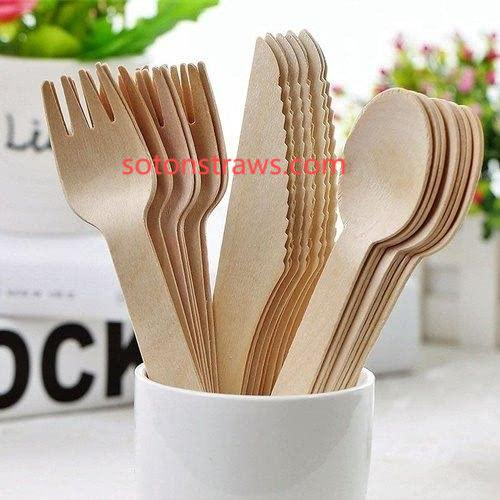The modern dining experience is undergoing a quiet transformation, one fork and spoon at a time. The eco-friendly cutlery has emerged not merely as an alternative to plastic but as a symbol of humanity’s evolving relationship with nature. From coastal cleanup drives to urban food festivals, these utensils now embody a global shift toward regenerative consumption.
The story begins in agrarian landscapes, where agricultural waste—rice husks, sugarcane bagasse, and wheat straw—once burned or discarded—is being reborn as durable, heat-resistant tableware. Innovators are harnessing the structural integrity of plant fibers to create cutlery that withstands hot soups and oily dishes without warping, a feat once deemed impossible for biodegradable materials. Coastal communities, grappling with plastic-choked shorelines, now collaborate with artisans to craft cutlery embedded with seeds of native mangroves. When washed ashore, these utensils don’t pollute; instead, they sprout into ecosystems, turning waste into life-giving anchors for marine biodiversity.
Social media has amplified this movement. Social Platform creators showcase DIY workshops where fallen branches are carved into chopsticks, while Instagram influencers host “zero-waste dinner parties” using utensils that dissolve harmlessly in backyard compost bins. Restaurants, once reliant on cheap plastic, now source cutlery from urban farms growing mushroom-based mycelium forks—a closed-loop system where waste from one process fuels the next. Even airlines, under pressure to reduce cabin waste, are testing algae-based spoons that nourish soil when discarded.
Yet challenges linger. Skeptics argue that eco-friendly cutlery remains a luxury in regions where affordability trumps sustainability. Others critique “greenwashed” products that degrade only under industrial conditions, not in home composts. Despite this, grassroots collectives are bridging gaps: women’s cooperatives in Southeast Asia produce palm-leaf cutlery using traditional weaving techniques, ensuring cultural preservation alongside ecological impact.
The future lies in systemic integration. Smart cities are embedding composting hubs near residential areas, while schools teach children to mold seed-infused utensils as part of ecology curricula. As climate disasters intensify, these small, intentional choices—embodied in a spoon or fork—are rewriting humanity’s legacy from one of extraction to regeneration.
click sotonstraws.com to reading more information
